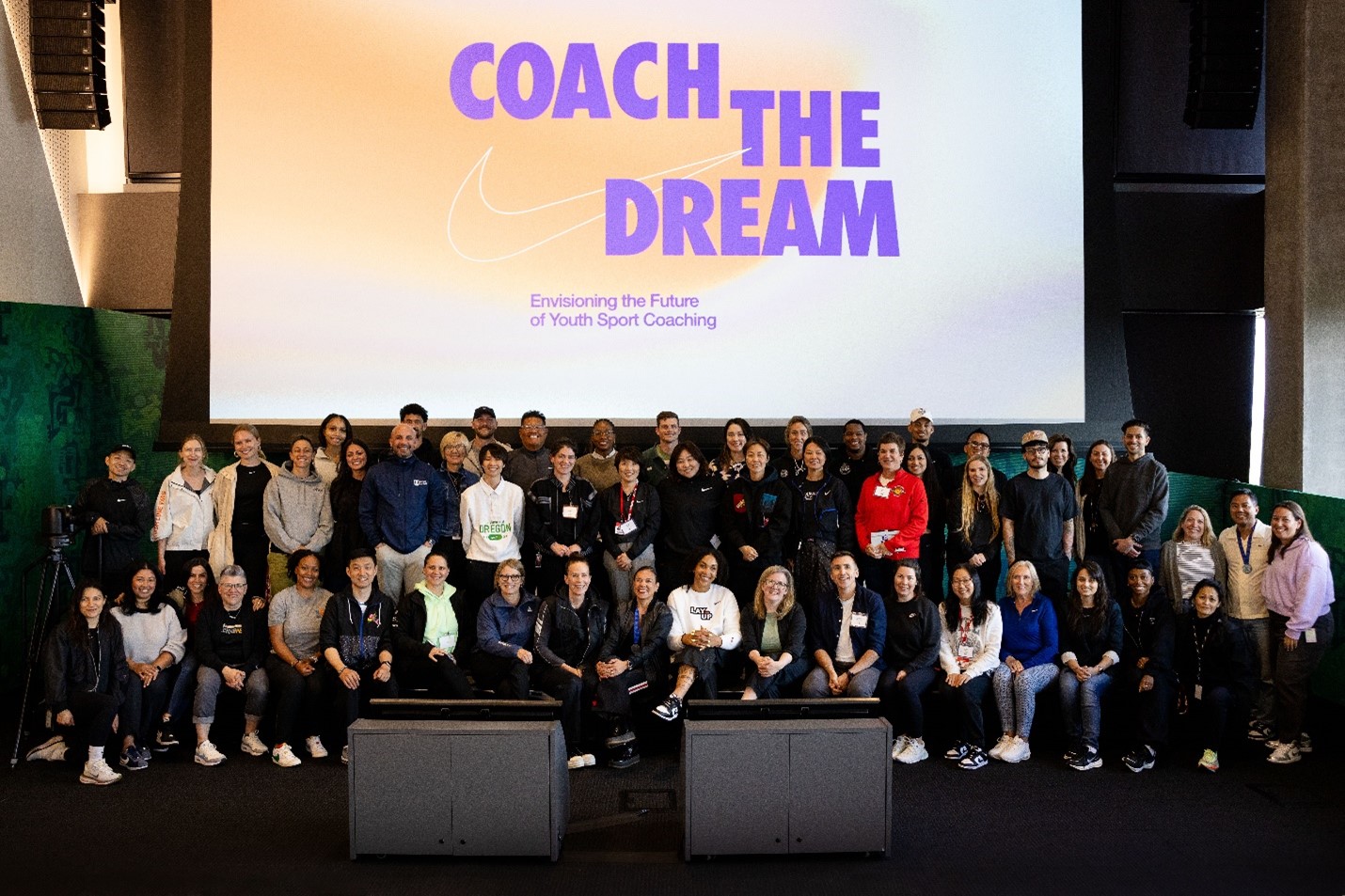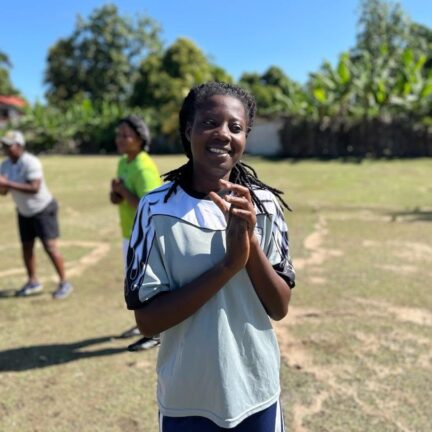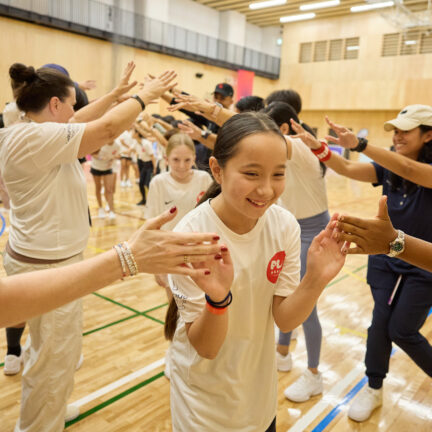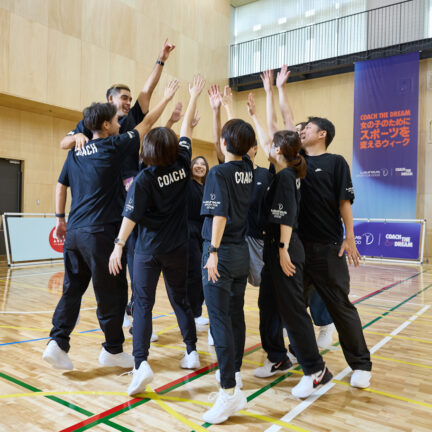Earlier this summer, a summit entitled “COACH THE DREAM Envisioning the Future of Youth Sport Coaching” was held at Nike World Headquarters in Beaverton, USA. The summit was attended by Kaho Shinohara, Senior Programs and Grants Manager of Laureus Sport for Good, representing the “Play Academy with Naomi Osaka” and Yuiko Inoue, Representative Director of S.C.P. Japan, a implementation partner of the Coaching Network Program for Gender Equality in Sport.
This article is developed based on their report which was shared as part of online networking session of the Coaching Network Program for Gender Equality in Sport two weeks after the summit.
During the networking session, Shinohara introduced:
“The Coaching Network Program for Gender Equality in Sport has been working since March 2023 to connect coaches and sport leaders in order to create a safe environment for youth, especially girls, to participate in Sport. I hope that by sharing what’s been discussed and learned in the summit, we can provide an opportunity to think about the future of coaching and the actions needed to improve the quality of coaching. By participating in the summit, I was inspired to become a coach of human development even though I am not good at playing sport. ”
As Inoue offers coaching and facilitation in the field related to youth, she expressed her enthusiasm: “The two days I spent at the summit were so inspiring that it changed my concept of coaching. So I’m excited to share it with you.”
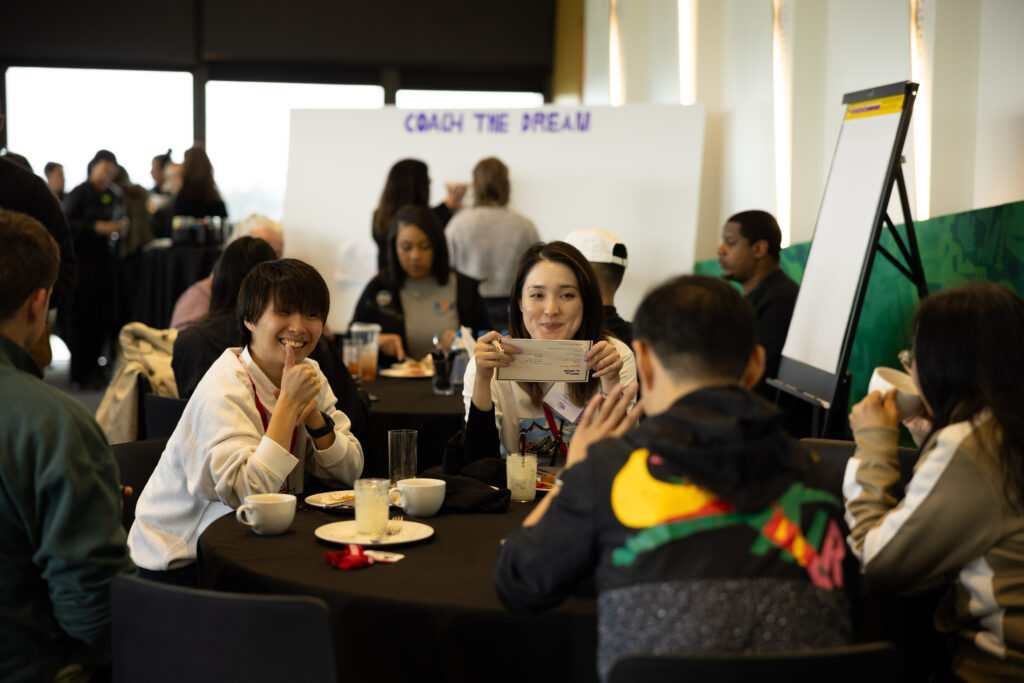
Shinohara and Inoue highlighted their three key takeaways as:
- Key elements of quality girls experience in sport are: good relationships, a sense of belonging and autonomy
- Values and beliefs in coaching come from people’s own lives
- The crucial action to increasing the number of coaches is the participation of parents. Parents should be encouraged to become a coach and participate in a decision making process (e.g. annual goal setting) of their children’s team.
Local coach participants reflected on learning from the networking session as:
“I believe autonomy is important. In Japan, the structure tends to be that the coach comes up with a plan and then imposes it on the children and players. Such structures discourage to build a 50-50 relationship, and have an effect on building trust. I create a framework in the practice menu for the children to choose from. Then suddenly their faces light up, even though they looked bored.”
“I work as a communication skill coach at sport activities for junior high school students. My job is to build a team by creating good relationships. After learning each other’s names and building relationships with the coaches as an ice breaker, I work on creating autonomy and developing the ability to solve problems on their own as they engage in the activities.”
“Coach the Dream” is a revolution in youth coaching that Nike is leading
All youth deserve a great coach, an ally who helps them achieve their greatest potential and inspires a lifelong love for sport. But globally, only 1 in 5 kids gets the physical activity they need – with girls and kids from underserved communities moving the least.
For more than three decades, Nike has partnered with community organizations, experts, athletes and employees globally to power the future of youth sport – improving access, experience and community for all kids – with a focus on quality coaching and leading with girls.
At the summit, 40 people from around the world, including coaches, athletes and organizations that support children’s development through sport, gathered for two days of panel talks and workshops to discuss what is needed to welcome the next generation of coaches.
Lively conversations were held on a wide range of topics, including “what should youth sport coaching look like in the future, and what are critical skills for coaches to ensure that all youth, especially girls, find a place in sport?” and “How can we encourage a new generation of coaches, especially women coaches, and what needs to change to make these visions a reality?”
Day 1:“BEST OF YOURSELF”
Day 1 of the summit began with an opening talk, after a tour of Nike World Headquarters. Vanessa Garcia-Brito, VP, Chief Impact Officer at NIKE, Inc. and Karina LeBlanc, General Manager and President of Portland Thorns Football Club Operations, a former goalkeeper for the Canadian national team, appeared as speakers.
“Nike sees everyone as an athlete, regardless of their experience in sport. There was also talk about how everyone is and can be a coach, as adults and can help children lead better lives. Coach is a role not limited to sport. Vanessa’s story was inspiring that the first coach she met in her life was her mother, who had a profound influence on her life,” reported Inoue.
The phrase “BEST OF YOURSELF” was used frequently discussed. This phrase means that the coach is the one who can teach youth to be the best version of themselves and it’s important to help the youth embody that feeling.
What’s important to realize about “BEST OF YOURSELF” is to first listen to youth’s voices. For building trust, it’s more important to listen, than to talk. It’s important that we interact with youth in a way to help them realize that their voice matters.
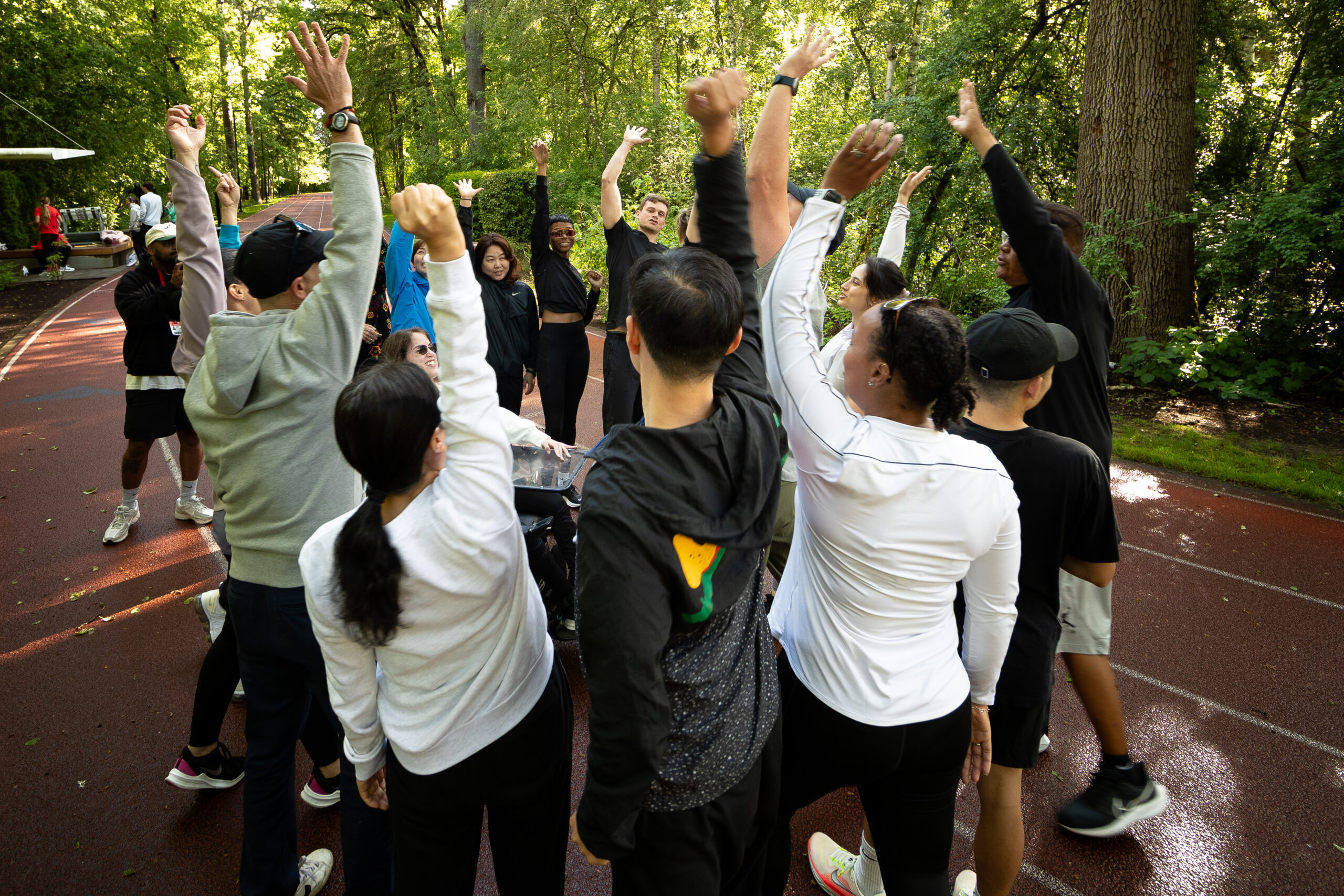
Day 2: What is coaching? What can coaches do for girls?
The first half of day 2 of the summit consisted of a panel discussion featuring Sylvia Fowles, a four-time Olympic gold medalist for the U.S. and professional basketball player in the WNBA; and several coaches active in the US and Europe.
The first theme posed to the panelists was “What do coaches urgently need right now?” There were various answers to that, including:
“Coaches want to help children grow and jump higher, but they need a foundation to do so. The foundation is a state that children feel content and secure, and it is important for the coach to play a role in creating that first. ‘Heal before fly;’ healing needs to be considered before flying high.”
“Nowadays, coaches are expected to do too much. With children with diverse needs, coaches have a lot of work to do and a lot of pressure. We should recognize and appreciate that coaches spend a lot of time on the job. What is urgently needed is to ‘think about what you can do for the coach’.”
The second theme was about the efforts of an American community organization, the Center for Healing and Justice through Sport (CHJS).
The coaching material “NOTHING HEALS LIKE SPORT” produced by CHJS is based on brain science and explains how sport can heal people. The CHJS founder, Megan Bartlett, talked about how to make the most of sport based on this understanding. She presented three key concepts as follows. Building “good relationships” with coaches and peers. Designing “autonomous” setting in which the child’s voice is heard and allows them to take the initiative. The third was the “sense of competence” in which one’s own skills are flourished.
The final theme was “what is a coach’s job?”
“Coaching is about building relationships with children, but it’s not rare that coaches have only studied sport. Because they are coaching ‘life’, not just ‘sport’, they should learn more about coaching ‘life’. In addition, the importance of being intentional (to achieve goals) and being consistent (with children and parents,) rather than just providing a place to play sport,” reported Inoue.
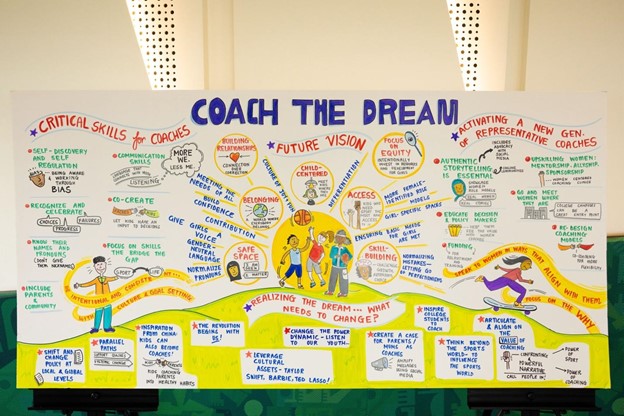
At the end of the summit, a graphic recording, “ the future vision of sport and coaching,” summarizing all the participants opinions, was shared as a review of the two-day program. The mountain in the graphic recording was depicted as the foundation of “what we can do to realize this vision and what concrete actions we can take to make it a reality.” The points listed included: forming a system that allows parents and students to participate as coaches, reforming the values of coaching in innovative ways such as through the use of TV dramas and entertainment, and leading to the social structure change through policy shifts at the global and local levels.
In order to bring about change in girls’ lives through play and sport, it will be even more important to have “next generation of coaches” who can make them feel like they can be themselves and find belonging in sport. Play Academy with Naomi Osaka will continue to work with its partners, Nike and Laureus, to realize this goal, and will continue to promote activities that will revolutionize sport for girls in Japan.
